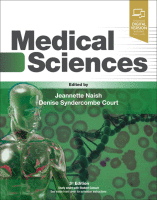Physical Address
304 North Cardinal St.
Dorchester Center, MA 02124

Introduction Disease results from a failure of homeostasis within the body, which causes impaired function. Failure of homeostasis itself can be due to a multiplicity of causes, extrinsic and intrinsic, many of which are discussed in other areas of this…

Introduction Historical background Genetics is a very new science, changing rapidly by the day with advances in technology. Although humans have long been aware of some form of heredity, the mechanisms have only recently become clear. Early philosophers talked about…

Introduction Pharmacology is the science that covers the actions, mechanisms of action, uses, adverse effects and fate of drugs in animals and man. The word ‘pharmacology’ comes from the ancient Greek word ‘pharmakon’ and is the science of what drugs…

Introduction to Metabolism The human organism needs a constant supply of energy to enable a number of processes that are essential to survival. The central issue in metabolism is that the demand for energy is constant but the supply intermittent.…

Introduction Cell biology tells us about the structure and functions of the cell and its organelles, whereas biochemistry addresses the chemical basis of the composition of the human body, its structure and its functions, and also the preservation and continuity…

Disease ensues when normal physiological mechanisms and processes are disrupted. These processes take place in the basic unit of living organisms: the cell. It is therefore essential that all clinicians understand normal cellular and molecular mechanisms and processes in order…